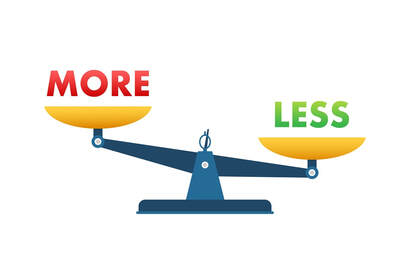In Pursuit of Profit
Read our expert article below or sign up to get articles sent to your inbox.
 A resource offered in partnership between The ASP Team and CFO Selections One commonality among our businesses at The ASP Team and CFO Selections is that we often talk to business leaders that aren’t sure which kind of accounting role they need. They typically understand the duties they would like the person to perform and the deliverables they expect to receive, but they aren’t sure what to call the role exactly. Without the proper title it makes it difficult to hire into the role or find an accounting services company to provide exactly what they need. Sometimes clients will come to us at The ASP Team saying that they need a “bookkeeper” as a catch-all phrase for someone doing any kind of accounting work but what they are really looking for is something more – an Accountant, Senior Accountant, or even Controller. Similarly, sometimes clients will come to us at CFO Selections saying that they need a “CFO” as a catch-all phrase for someone doing more advanced accounting work or leading an accounting team but what they actually need is something less – a Controller, Accounting Manager, or Senior Accountant. How do you know which you need? This resource is meant to help you understand what the differences between accounting roles look like so you can name what you need better when looking for a provider or posting a job opening.
Answer the following questions and then count how many of each color you have. Where more than one answer is appropriate, count each color that applies. 1. Who will the person be responsible for overseeing? Is an individual contributor. Bookkeeper/accountant(s). A team of bookkeepers/accountants. An accounting manager and/or Controller. 2. What kind of duties will the role primarily have? Recording day-to-day transactions, balancing the books, handling A/P and A/R, record keeping, posting ledgers, reconciling accounts, and monthly closing. Providing financial insights, implementing and maintaining internal controls, handling complex financial transactions, documenting processes and identifying areas for improvement, and preparing for an audit. Accounting team oversight, setting up accounting infrastructure, monitoring and controlling cash flow, overseeing payroll and benefits, monitoring debt and pursuing collections, dealing with compliance requirements and regulatory matters, managing risk, handling an audit, and training accounting staff. Overseeing overall financial strategy, developing financial policies and procedures, preparing budgets, scheduling expenditures, planning and forecasting, making strategic business growth decisions, watching market trends, advising on best practices, managing outsourced financial activities, and mentoring accounting and finance staff. 3. When it comes to reporting, which role will this person play? Running basic monthly reports. Providing detailed financial reporting. Overseeing the production of financial reports. Analyzing financial reports and KPIs to make strategic decisions. 4. Who will the person primarily interact with? Other staff. Lower-level bookkeeping/accounting staff. Lower-level staff and other teams – HR, operations, sales, marketing, etc. The executive leadership team and external audiences – investors, business partners, a board of directors, the public, etc. 5. How much verbal communication are you expecting from the person to supplement the work being done? Very little – does the work and runs the reports. Some – provides financial analysis. More – provides financial analysis and strategic advice. Extensive – rallies teams around the strategic vision internally and is the financial face of the organization externally. 6. What is the primary focus of the role? Administrative and transactional. Functional. Tactical. Strategic and forward-looking. 7. What kind of background should the person have to succeed in their role? Bookkeeping. Accounting or finance. Accounting only. Finance, accounting, commercial banking, investment banking, or treasury. 8. Which types of roles in you organization have a comparable salary to this role? Entry-level roles. Skilled or technical roles. Director-level roles. Executive-level roles. 9. If there was someone acting in this type of role before, what was their job title? Bookkeeper, Treasurer, or Staff Accountant. Accountant, Senior Accountant, Accounting Manager, or Assistant Controller. Controller, Accounting Director, VP Accounting, Finance Director, VP Finance. CFO, CEO, or COO. If your answers were primarily blue, the role you need is a bookkeeper. At The ASP Team we offer bookkeeping services as well as accounting recruiting to help you hire a bookkeeper for a full-time role. If your answers were primarily green, the role you need is an accountant. The ASP Team also offers outsourced accounting services as well as accounting recruiting to help you hire an accountant in-house. If your answers were primarily orange, the role you need is a Controller. At CFO Selections, we offer outsourced Controller services to give you part-time access to the senior-level leadership you as well as financial recruiting to help you hire a Controller full-time. If your answers were primarily red, the role you need is a CFO. At CFO Selections, we offer outsourced fractional CFO services to provide the forward-looking executive-level leadership you need on a part-time basis as well as executive recruiting in finance to help you hire a CFO in-house. For more information on this topic, check out at these additional resources: |
SUBSCRIBE:DOWNLOAD:DOWNLOAD:Categories:
All
Archives:
July 2024
|
Services |
Company |
|
4/22/2024